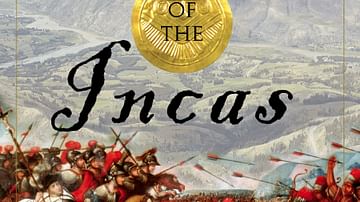Search
Search Results

Definition
Roman Britain
Britain was a significant addition to the ever-expanding Roman Empire. For decades, Rome had been conquering the Mediterranean Sea – defeating Carthage in the Punic Wars, overwhelming Macedon and Greece, and finally marching into Syria and...

Definition
Shahnameh
The Shahnameh (“Book of Kings”, composed 977-1010 CE) is a medieval epic written by the poet Abolqasem Ferdowsi (l. c. 940-1020 CE) in order to preserve the myths, legends, history, language, and culture of ancient Persia. It is the longest...

Definition
Late Period of Ancient Egypt
The Late Period of Egypt (525-332 BCE) is the era following the Third Intermediate Period (1069-525) and preceding the brief Hellenistic Period (332-323 BCE) when Egypt was ruled by the Argead officials installed by Alexander the Great prior...

Article
Battles & Conquests Of The Ottoman Empire (1299-1683)
Spanning across three continents and holding dominance over the Black and Mediterranean Seas, the Ottoman Sultanate (1299-1922) was a global military superpower between the 15th and 17th centuries. From the point of its inception in 1299...

Interview
Interview: The Last Days of the Incas (Kim MacQuarrie)
How did a mere 167 Spaniards conquer an empire of 10 million people? The Spanish were outnumbered 200-to-1 yet they were able to seize the Inca capital, Cuzco, and dispose of the Inca ruler within only a year. Kim MacQuarrie's The Last Days...

Article
History of Juneteenth
Juneteenth is an annual event celebrating the end of chattel slavery in the United States in commemorating the issuance of General Order No. 3 (which included the line "all slaves are free") in Galveston, Texas on 19 June 1865. In 2021, Juneteenth...

Definition
Medieval Literature
Medieval literature is defined broadly as any work written in Latin or the vernacular between c. 476-1500, including philosophy, religious treatises, legal texts, as well as works of the imagination. More narrowly, however, the term applies...

Definition
Rollo of Normandy
Rollo (l. c.860-c.930 CE, r. 911-927 CE) was a Viking chieftain who became the founder and first ruler of the region of Normandy. He converted to Christianity as part of a deal with the Frankish king Charles the Simple (893-923 CE) in 911...

Definition
Crusader States
The Crusader States (aka the Latin East or Outremer) were created after the First Crusade (1095-1102) in order to keep hold of the territorial gains made by Christian armies in the Middle East. The four small states were the Kingdom of Jerusalem...

Definition
Anglo-Saxon Warfare
Anglo-Saxon warfare was characterised by frequent and violent conflicts between petty kings, which ultimately led to the rise of larger kingdoms such as the Kingdom of Mercia, the Kingdom of Northumbria, and the Kingdom of Wessex. In early...